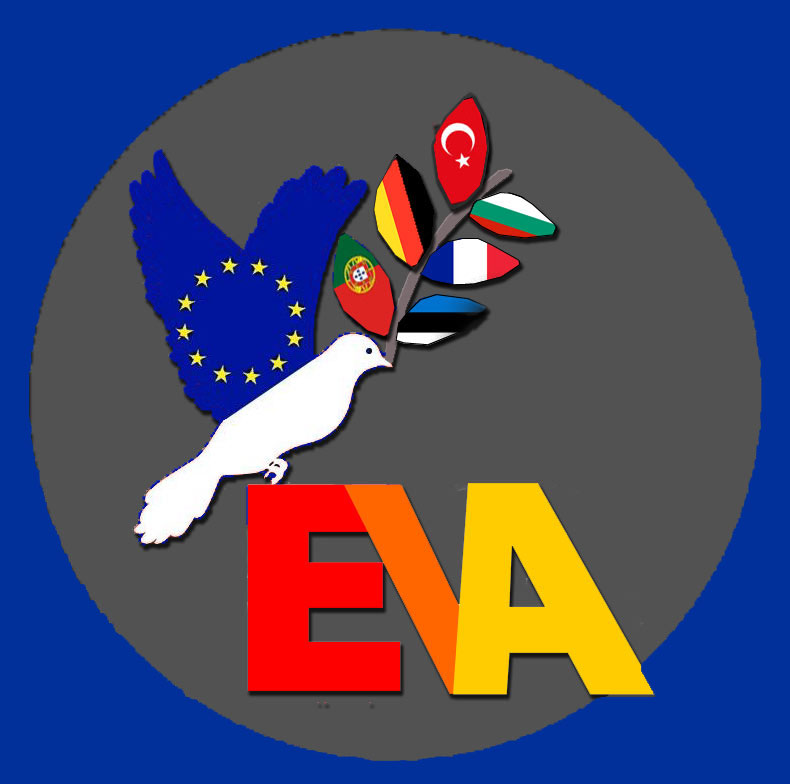  in Estonia in Estonia
representated by Liis Raal-Virks 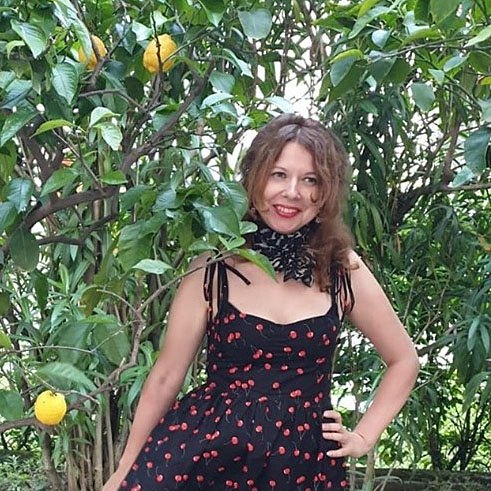
Pärnu Ühisgümnaasium was founded in 1861 and is the eldest school in town. The student body
of Pärnu Ühisgümnaasium consists of 380 students, 16-19 years of age, and 33 teachers. Pärnu
Ühisgümnaasium is a place where learning is valued. The teachers appreciate the principle of lifelong learning. The
students can compile their own curriculum based on their interests and competences. It is the only school in town and in the
whole county and one of the few in Estonia where modular study is applied. Studying in the school is interesting and varied
as the school is a modern and innovative institution which applies the newest principles in education. The school has a
modular study system, every student has to choose two modules from ten: Languages, Business and Economy, Architecture and Art,
Sciences, Media, Health and Sport, Creative industry, Philosophy and Social Studies, Informatics and International relations.
The school motivation for this project lies in its modular study and in its aim to establish a more efficient
interdisciplinary approach. The project would integrate the different modules as Languages, Architecture and Art, Media,
Creative Industry, Philosophy and Social Studies, Informatics and International relations. Thus, the project would promote
cooperation between the teachers and students of different modules which is essential to create a strong and united staff and
community of students. The other reason for being motivated to participate in that project is the particularity of the
students community of the school: among Estonians, there are students whose parents are Russians, Ukranians, Georgians, and
representatives of small finno-ugristic ethnic groups as ingerians (ingerlased) and karialians (karjalased). The school has
taken part in various international projects since 2001. The key persons of the projects would be the school's project
manager Liis Raal-Virks, an experienced Erasmus+ coordinator, English teachers, a music, art, IT, media and philosophy
teacher. The project coordinator will nominate a vice-coordinator in order to make the possible taking over smoother and
easier for the project team. The school's expertise lies in successful experiences in organizing the international events and
song festivals to make other linguistical and cultural communities more visible in our society and in carrying out the
debates and philosophical debating tournaments. These are the two project activities and events (song festival and a debate)
that will be organized and held in the Estonian school during a learning teaching training activity. Since 2013, the school
has held a song festival called "Russian Song" to promote tolerance between Russian speaking and Estonian speaking
communities in Estonia. If the project gets the grant, the school will hold an international music festival called "Song of
Minorities" to promote tolerance towards the minorities living in our 6 countries.
|
 Sredno uchiliste "Hristo Botev" in Kubrat,
Bulgaria Sredno uchiliste "Hristo Botev" in Kubrat,
Bulgaria
representated by Nina Tsoneva 
Our organisation is a public secondary school , the biggest in the municipality, that includes one town and
16 villages. There are 56 teachers who work there and they teach about 650 students aged 7- 19. Students are taught general
education as well as intensive English and IT classes. Most students come from underprivilidged backgrounds as the region we
live in has a high rate of unemployment. Most parents work abroad and students are taken care of by their grandparents. The
region is also of a mixed population; Christians, Muslims and Roma. Despite the various difficulties that arise because of
the above mentioned reasons, our students are great in both studying and and interpersonal relationship. As an educational
institution we constantly search for ways to teach them to live together in peace and that is our basic motivation to join
this project. It is another opportunity for us, the teachers to involve our students in activities together with peers from
other countries in an attractive way that allows them to express their creativity, which they love doing. We hope that by
including the most isolated students we will help them feel important and that is how we hope to boost their confidence. Last
but not least we are sure that by improving their English language and social skills they will perform much better at
school.The key people in charge of running the project will be two English teachers, one Head teacher and one Social studies
teacher. In case these people leave their posts their roles will be taken over by another English language teacher, a History
teacher, an Art teacher and the other Head teacher. The two English teachers and the Head teacher are richly experienced in
carrying out international projects, one of the English teachers has attended two Erasmus+ training courses related to
Drama in education. We have taken part in various national Drama in English contests and won first prize every time with our
youngest students. All the teachers in charge of running the project speak English and are good at using technologies for
communication and project work. We have etwinning accounts and use the platform to work on various projects. We are also
experienced in taking part in and organising various multicultural events, like festivals, national integration projects,
folklore and dance competitions and charity events.
|
  in
Portugal in
Portugal
represented by Dionisio Ferreira 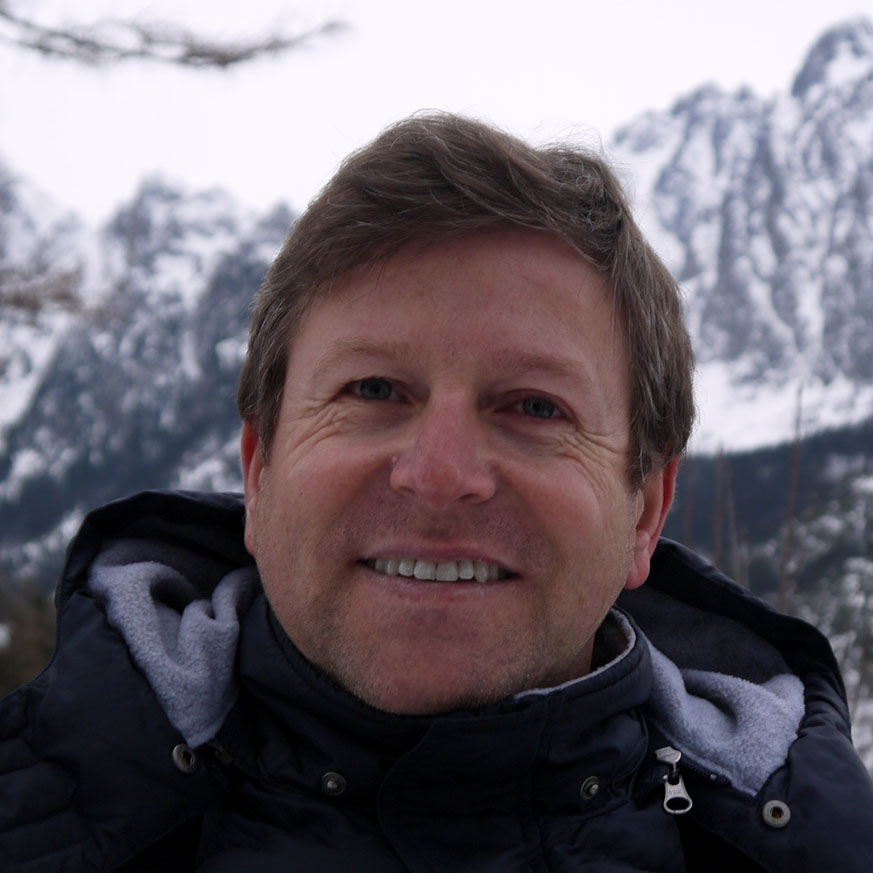
Agrupamento de Escolas de Resende is composed by all the schools that exist in the Council of Resende and
they have about 1500 students. Our schools include Infant, Primary and Secondary teaching with ages from 3 to 18 years old.
Escola Secundária Dom Egas Moniz is a secondary school with 760 students distributed through classes from the 7th grade
(12 years old) till the 12th (18 years old) grade. Resende is a small village situated in the North of Portugal and all the
pupils come from the surrounding area. It is a rural region and the students families seem not to enjoy very stable
economical positions. Another serious problem which affects the students quality of life is the fact that the majority
of them have to spend more than 40 minutes in public transports in order to get to school. In order to enter a more European
framework (both as regards cultural and economical standards) the priority of the school is to offer teachers and pupils the
possibility of participating into Erasmus+ projects: in fact to participate to an Erasmus+ project will be a valuable
experience for both students and teachers, since it will give them a chance to get in touch with other European Education
systems and cultures. To be able to attain this goal the school curriculum focuses onto foreign languages (English and
French), Computer technology, Arts and Sport subjects; also great attention and care are given to extra curricular cultural
activities like educational contests, sport competitions and cultural tours. The school also provides regular cultural
subjects (Science) and vocational courses. The school has significant experience in European programmes such as Comenius and
Erasmus+ projects. The Erasmus+ team consists of dedicated professionals who have developed important ways of working
especially in the topic of the project. Our teachers have acquired a number of skills, such as project management, reporting,
analysis; creating evaluation tools, organizing the mobility of young people and adults, teamwork, the use of modern
technologies: the creation of Twinspace on the platform (one of the dissemination and informative channels) to put developed
materials, presentations, movies, etc). We have obtained the "eTwinning Quality level". Apart from this, the school has
experience (which could be transferable to the project) in training teachers on the scope of organization of educational
projects, diversified curricular offers, the importance of non-teaching staff in the achievement of the school education
project, collaborative supervision and professional development and planning strategic action to promote the quality of
learning.
|
  in
Gaziantep, Turkey in
Gaziantep, Turkey
represented by Ertugrul Sivakcigil 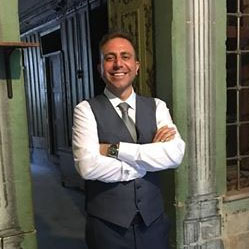
Aktoprak anatolian highschool has been founded in 2010. Our school is located in Aktoprak neighborhood which is
in Þehitkamil district in Gaziantep. The distance between city center and our school is nearly 22 km. Our school has 41
teachers, 700 students, 1 officer, 2 janitors. We also have 20 classes, 4 labs, 1 library, 1 conference room, 2 prayer rooms,
4 playfields (one of them is indoor) including basketball, football, volleyball fields. There is a sport club in our school.
Our students can attend this club and spend their spare time productively. In addition, our students attend inter-highschool
competitions such as basketball, football, athletics, knowledge contests etc. And they win lots of medals. We have a
powerfull staff. All of our teachers are young and proficient in their branches. We provide many opportunities to our
students. Our school is equipped with latest technology including smartboards, tablet computers, labs, etc. We attend
scientific fairs such as TUBYTAK. Last year we made exhibitons for our e-twinning projects. students join to all of
projects and they are in them actively. Our aim is to improve ourselves and to do best for our school. We want to provide new
opportunities to our disadvanteged students. Our aim is improving cultural relationship. As we all know, we have a border
with Syria. Because of the war in there, a lot of refugees had to immigrate to our country and stayed here. We host thousands
of refugees. Refugee children go to Turkish schools. We do our best to integrate them into our system. We treat them with
respect and tolerance. Our aim is also to introduce different cultures to our students. We want them to make empathy and look
issues from different perspectives. Because our culture values human life and human rights. Neighborhood is very important in
our culture. So we welcome with open arms all refugees. Project coordinator will be Ertuðrul SIVAKCIGÝL who has
been in Erasmus+ Project with his latest school. He learnt how to coordinate projects. He made 3 e-twinning projects last
year and in this year he is in 4 e-twining projects. Our school principal attended Comenius and youth projects as a part of
European Union. They went to abroad and gained experience about projects for many times. Also he supports our projects with
his experience. We have more than 10 teachers who are working actively in e-twinning projects. All participants need to learn
how to integrate the refugee students in our education. They need to know how we can understand them, and teach subjects.
Also they need to learn European education system to integrate the subjects that refugee pupils learn in our curriculum.
In the same time all of them help us to implement, to disseminate and evaluate the project in Turkey. Also our Project
coordinator is responsible for our communication among all partners. Our school is ready for new adventures.
|
 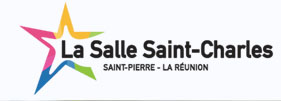 in La Reunion,
France in La Reunion,
France
represented by Aline Fouilhoux 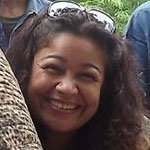
Lycée La Salle St Charles is located in the south of Reunion Island. It is a classical, vocational and
technical French Highschool. There are about 2000 pupils. The school offers a secondary school in which the pupils (from 15 to
18) prepare "baccalauréat"(roughly Abitur or A-level),a vocational school(about Administration
Management & Sales), Technical School(about Sales) a high school(baccalauréat + 2 exams) in international trade and
commercial. The school is open to the world and to Europe. Our pupils learn English, German, Spanish and Chinese from level A2 to
B2. Numerous teachers are involved in various educational trips or exchanges for example to South Africa,
Australia, Madagascar, China. We've also EU sections in which pupils get more practice in EU languages and learn more about EU
culture. We've already hosted English assistants (from Poland, Scotland, South Africa, Netherlands ...) and German assistant
who shared their experiences with teachers and pupils. We regularly send and receive French and German pupils with the
Brigitte Sauzay program and we have an e-twinning project with a German college in Kassel. Some of our teachers have allready worked on
several class' project. Some of them are involved in EU programs since many years: several Comenius projects have been done. In the
vocational school, many Erasmus+ projects have been done too. Ex: No man is an island in 2019-2021 / European Citizenship and
Multiculturalism (KA219 2017- 19) / We are Europes Challenge (eTw2017-2018). E-twinning is regularly used and practised in
various classes. We'd like to join this project because diversity is part of our identity. Indeed, population in Reunion
Island come from mainland France, surrounding islands and southern Asia: our school community reflects this pluralism. So, EVA
project represents a real opportunity for our pupils to confront their own experience about diversity to the other one. In
this way, it will allow them to broaden their horizons and minds. Some of them have never travelled. Meeting with the others will
help them to stop the fear of the stranger and contribuate by this way, to accept differences and to respect others. But also
it will permit them to boost their motivation while discovering what opportunities their European citizenship offers in EVA
Project. Because it's very important for our young generations to consider European citizenship as something concrete
and not only an administrative and political label. The preferred contact person, Mrs. FOUILHOUX, is a teacher in Communication
and Administration management since 22 years ago. It's her 1st participation to an Erasmus+ project, but she has experience in
organizing travels for pupils. She projects to teach in European section in the vocational school. Mrs. CANADAS who teaches
Sales is a new teacher. Before this, she was a manager in a big firm. Thus,she'll be a support to coordinate
entrepreneurial projects with local organizations. Besides, these two teachers can count on Mrs DARQUITAIN who's an e-twinning
ambassador and coordinator as well as an Erasmus+ developer.
|
  GE
Volksgarten in Mönchengladbach, Germany GE
Volksgarten in Mönchengladbach, Germany
represented by Susanne Gründler 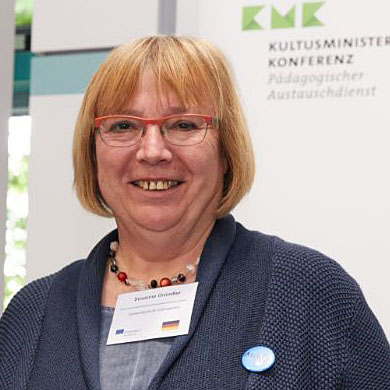
At our school (GE Volksgarten, Mönchengladbach, Germany) there has been busy a working group (MUT =
Miteinander unterwegs-Team) for several years, in which colleagues talk about problems in dealing with pupils and parents
from other cultures and with different religions. The goal of this group was to defuse conflicts arising from ignorance and
misunderstandings and to deepen mutual understanding. At our school there are students and parents from many European
countries (including Turkey), but also many countries from Africa and Asia are represented as countries of origin. In our
school, we like to emphasize that this diversity is not a burden but an opportunity to broaden your horizons for all those
involved, to reduce prejudice and to see the future in a cosmopolitan way. With the increased admission of refugee children
into all age groups and the resulting difficulties in integrating children without knowledge of German language, the desire
to exchange ideas with other students in other European countries about their everyday problems, views and solutions arose.
At first we thought of schools in the Netherlands, Belgium and France with starting points similar to those in NRW. But there
were quite different constellations (see participating institutions) we found in search for interested schools, but they show
how diverse the situation of migration in Europe is. Together we want to describe and analyze our respective situation,
identify similarities and differences, talk about EU refugee policies, and examine the religious aspects of integration. For
all involved students, parents and teachers, this will change the view of our everyday problems and lead to new strategies of
solutions, which we can only find in intercultural exchange. Recognizable, sustainable and reproducible results should
include two "products", a preamble for the school's house rules and how to create them in cooperation with teachers, students
and parents, and a collection of sketches, theater scenes or even a complete play (Musical) on cultural integration
(equality, variety, acceptance). Both goals could be tackled "in-house" at our school, but the MUT group has been on the spot
for quite some time because we have too little exchange with views other than our German. Therefore, we would like to
intensify the two goals of European exchange - also a bit as an ambassador for a "welcome culture". This includes the direct
meeting of the participants and for this we need the money of the EU to pay for the mobilities and the
dissemination.
|
|
